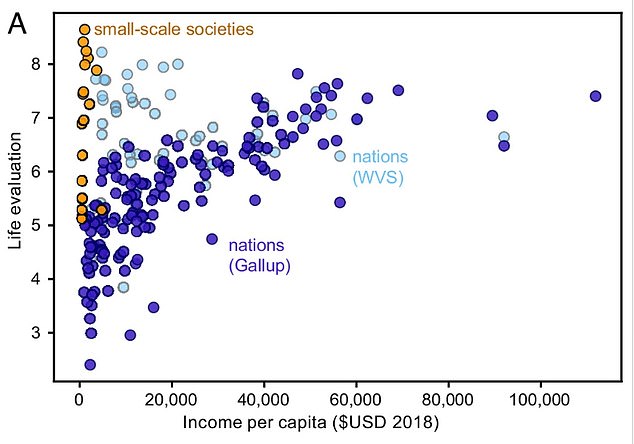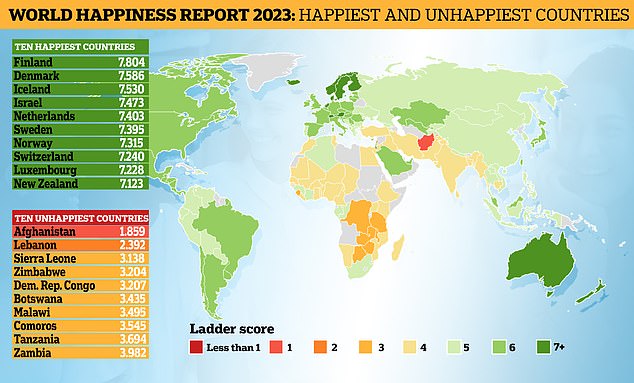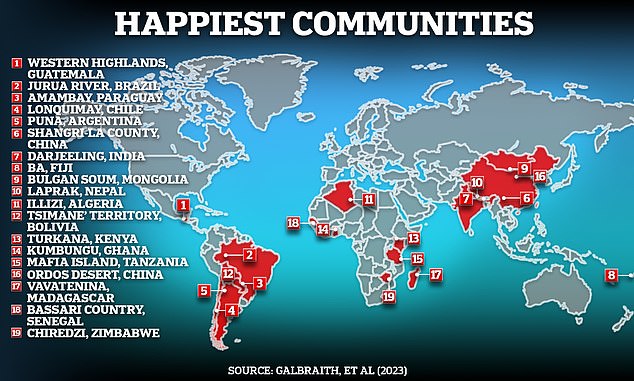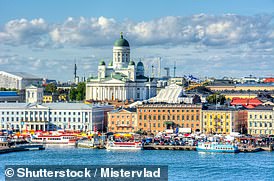Turns out the old saying “Money can’t buy happiness” is true.
Historically, economic growth and higher household incomes have been seen as a way to increase people’s well-being, and global surveys have shown that people in high-income countries tend to report higher levels of happiness than people in low-income countries.
However, researchers from Barcelona and Canada maintain that the conclusion may not be universal and that the surveys used only collect responses from people in industrialized cities, but do not study people from small-scale societies where money does not play a central role in the daily life. and the livelihood of residents depends more on nature.
Based on a survey of 2,966 people from indigenous and local communities in 19 locations around the world, researchers have found that indigenous peoples’ societies and those in small local communities report living very satisfying lives despite not having much money .
The researchers wrote: “The surprising aspect of our findings… is that life satisfaction reported in very low-income communities can equal and even exceed that reported in the higher average levels of material wealth provided by lifestyles.” industrial”.
The researchers concluded that the findings are strong evidence that you don’t need economic growth to be happy.
Based on a survey of 2,966 people from indigenous and local communities in 19 locations around the world, researchers have found that indigenous peoples’ societies and those belonging to small local communities report living very satisfying lives despite not having a lot of money.

Eric Galbraith, lead author of the study, said: “Surprisingly, many populations with very low monetary incomes report very high average levels of life satisfaction, with scores similar to those in rich countries.”
Only 64 percent of households included in the survey reported having cash income.
And the researchers wrote that high life satisfaction is shown “despite the fact that many of these societies have suffered histories of marginalization and oppression.”
The 19 communities were chosen for a study to assess local knowledge about the impacts of climate change. Within that study, there was a life evaluation question.
The researchers translated the question into the local languages of the communities they were surveying: ‘All things considered, how satisfied are you with your life on a scale of 0 to 10?’
Ten represented the greatest satisfaction.
While all societies relied heavily on nature for sustenance, they varied widely in social, cultural, and environmental characteristics. Most communities had an estimated annual monetary income of less than $1,000 per person.
The average life satisfaction score on a scale of zero to 10 among the societies studied was 6.8. The lowest score was 5.1, but five of the communities surveyed scored an eight or higher on the scale, making them some of the happiest people in the world.
The farming community in the Western Highlands of Guatemala was the happiest, with an average score of 8.6. The Western Altiplano is a mountainous region of Guatemala that includes the Sierra Madre mountain range.
The average household assets in the community were valued at $3,500.
The lowest scoring community was the farming community of Chiredzi, Zimbabwe, a town in southeastern Zimbabwe with a population of approximately 40,400. The average life satisfaction score there was 5.1 and the average household assets were valued at $71.
The five communities with happiness scores of eight or higher included: Western Altiplano, Guatemala (8.6); Juruá River, Brazil (8.4); Amambay, Paraguay (8.2); Longuimay, Chile (8.1); and Puña, Argentina (8.0)

The World Happiness Report, now in its eleventh year, is based on people’s own assessment of happiness, as well as economic and social data. It assigns a happiness score on a scale of zero to ten, based on an average of data over a three-year period.
According to the World Happiness Report, the happiest countries with the highest score were Finland with a score of 7.8, Denmark with 7.6 and Iceland with 7.5.
The World Happiness Report 2023 is based on people’s own assessment of happiness, as well as economic and social data.
Similar to the question asked in the study of 19 communities, the World Happiness Report asks respondents to rate their lives on a scale from zero (worst) to 10 (best).
In the most recent report, the United Kingdom fell two places to 19th, while the United States jumped one place to 15th.
Victoria Reyes-García, lead author of the recent study, said: “The frequently observed strong correlation between income and life satisfaction is not universal and demonstrates that wealth, as generated by industrialized economies, is not fundamentally necessary for humans lead a happy life. ‘
The researchers said this was good news for environmental and sustainability efforts around the world because it suggests that resource-intensive economic growth is not required for people to feel high levels of life satisfaction.
While the findings indicate that money does not buy a person’s happiness, the researchers were unable to hypothesize why indigenous and marginalized communities report high levels of satisfaction.
Citing previous research on related issues, the researchers said it could be due to family and social support, close relationships, spirituality and connections with nature.
Galbraith added: “But it is possible that the important factors differ significantly between societies or, conversely, that a small subset of factors dominates everywhere.”
“I hope that by learning more about what makes life fulfilling in these diverse communities, I can help many others lead more fulfilling lives while also addressing the sustainability crisis.”
He study was published by researchers from the Institute of Environmental Science and Technology of the Universitat Autònoma de Barcelona and McGill University of Canada in the journal Proceedings of the National Academy of Sciences.



